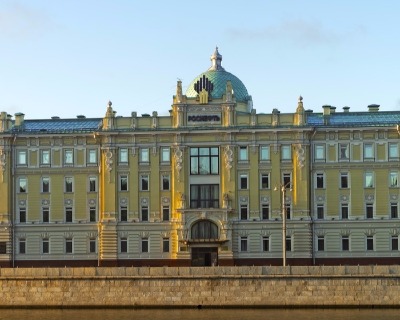Glencore surges past rivals to sign unexpected Rosneft deal
Commodity trader Glencore has stolen a march on its rivals, securing an unexpected deal with state-owned Russian oil company Rosneft. The Switzerland-based trading house will gain crucial volumes of Russian oil rounding off a resurgent year for the previously ailing trader.

Commodity trader Glencore has stolen a march on its rivals, securing an unexpected deal with state-owned Russian oil company Rosneft. The Switzerland-based trading house will gain crucial volumes of Russian oil rounding off a resurgent year for the previously ailing trader.
Last week’s announcement that Glencore would purchase a 19.5% stake in Rosneft, aided by syndicated financing, ends a remarkable year for the trader. The deal is being done in conjunction with the Qatar Investment Authority, the Arab state’s sovereign wealth fund.
Glencore, run by CEO Ivan Glasenberg, are currently undergoing a debt reduction programme but will receive an additional 220,000 barrels of oil per day for five years from Rosneft as part of the off-take agreement.
The equity is worth $10.2 billion with Glencore putting in $300 million for a stake worth 0.5% of Rosneft, which is also part-owned by British Petroleum. QIA will provide $2.5 billion with the remaining amount coming from non-recourse bank financing led by Intesa Sanpaolo alongside a syndicate of Russian banks.
The surprise move is a sign of Glencore’s intent to improve its oil-trading arm, which has struggled in recent years.
Jean-Francois Lambert, founder of consultancy firm Lambert Commodities, tells TXF: “It’s a very smart deal. Glencore will need to have a strong relationship with a big producer and Rosneft is one of the biggest. Russian oil, come rain or shine, will always be in need.”
A Joint Venture by Glencore and QIA is the leveraged entity for the financing, which is also non-recourse. This ring-fenced company limits the exposure that Glencore and the QIA have in the event of non-payment, though much of the leverage remains with the Qataris.
Glencore flexes its muscles
The acquisition is the largest foreign direct investment into Russia since sanctions took hold in 2014 and will wipe out around a fifth of its government budget deficit.
Rosneft had previously engaged in a number of activities with commodity trader Trafigura including a five-year pre-payment facility worth $1.5 billion signed in 2013 and a recent deal to acquire a stake in Indian oil company Essar.
Glencore’s deal with Rosneft pushes them ahead of fellow traders Trafigura and Vitol with the producer and will no doubt be seen as a coup for Glasenberg.
As Alexander Peters, board member of the Swiss Commodity Club and former Trafigura employee, tells TXF: “Glencore is making the right move. Trafigura surpassed Glencore as an oil trader over the past two years and this is a clear sign that they want their market share back.”
The deal highlights a remarkable turnaround for Glencore, which began a debt reduction programme after their share price plummeted last September. Having reduced its net debt substantially and re-started dividend payments, this deal pushes the miner-cum-trader into the forefront of the oil trading space.
As Lambert adds: “Trafigura was really the preferred partner for a long time which included the deal with Essar. This clearly gives a very strong competitive edge to Glencore, oil trading is a game of volumes and Glencore, who was struggling to get the proper volumes of Russian oil are now very much back into the business. It’s not good news for Trafigura.”
Waning sanctions concerns?
Since the advent of sanctions in 2014 both US and EU companies and financiers have been wary of doing business with Russia. Banks are unable to provide long-term financing to sanctioned entities and the resulting effect has seen a depreciation of the rouble and a downturn in the Russian economy.
However, despite Rosneft’s chief executive, Igor Sechin, being personally sanctioned, Glencore have managed to mitigate concerns in an equity purchase that seemingly doesn’t fall foul of the Office for Foreign Asset Control’s (OFAC) rulings.
The surprise election of Donald Trump and his subsequent appoint of Rex Tillerson as Secretary of State, someone who strong ties in and past dealings with Russia, has increased hopes that sanctions against the state could come to an end. Similarly, a lessening appetite for sanctions among European states could lead to a change in the landscape in upcoming years.
As Dr James Brown, a Russia-focussed associate professor of political science at Temple University Japan, tells TXF: “I think this deal could be seen as a turning of the tide for sanctions in Russia. This deal was too good to ignore for Glencore, despite lingering concerns about sanctions.”
OFAC declined to comment on the matter when approached by TXF.
Glencore’s turnaround has seen them push ahead of their rivals in the low margin world of oil trading. This latest deal also reinforces their presence in Russia, adding as it does to stakes it already owns in another Russian oil producer, Russneft, as well as aluminium producer Rusal.
The potential for new trading opportunities as a result of this deal not only hints a resurgence for the Russian market, but it also positions Glencore in a leading position at the end of what has been a tough year for the commodities business.





